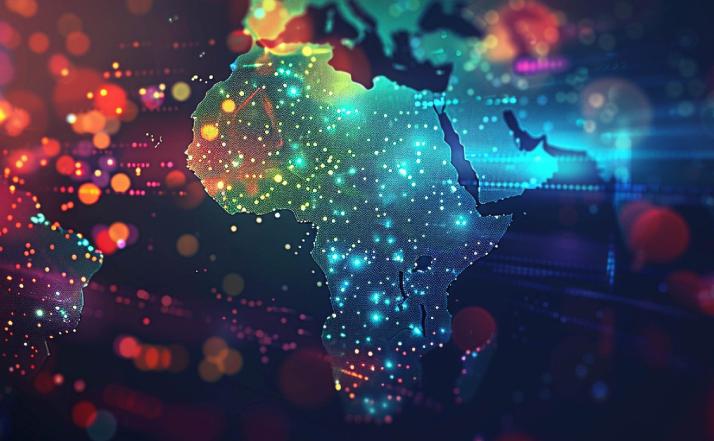
AI is expected to contribute approximately USD 15.7 trillion to the global economy by 2030, and Africa is well-positioned to tap into a substantial portion of this surge. The continent’s growing adoption of mobile and digital tools already offers the groundwork for an AI revolution, linking people, companies, and public institutions in new ways.
- Egypt leads Africa in AI readiness, with plans to train professionals and establish AI companies by 2030.
- The AI industry in Africa, currently valued at $4.5 billion, is expected to exceed $16 billion by 2030.
- Technological innovations, such as mobile money applications in Kenya and educational AI tools in Nigeria, highlight AI’s transformative impacts.
According to experts, the AI business in Africa is valued at approximately $4.5 billion. By 2030, it is expected to grow to over $16 billion. Because of this growth, over 230 million new digital jobs may be created in Sub-Saharan Africa alone.
The table below lists the top 10 African countries most prepared to utilise AI, according to a 2024 report by Oxford Insight.
| Rank | Country | AI Readiness Score |
|---|---|---|
| 1 | Egypt | 55.63 |
| 2 | Mauritius | 53.94 |
| 3 | South Africa | 52.91 |
| 4 | Rwanda | 51.25 |
| 5 | Senegal | 46.11 |
| 6 | Seychelles | 44.77 |
| 7 | Tunisia | 43.68 |
| 8 | Kenya | 43.56 |
| 9 | Nigeria | 43.33 |
| 10 | Ghana | 43.30 |
Egypt is number one in Africa when it comes to being ready for AI. The Egyptian government is utilising AI in various sectors, including hospitals, agriculture, and banking.
Egypt also has a big plan to grow AI by 2030. The government plans to create over 250 AI companies, train 30,000 people, and increase the country’s revenue from the tech sector.
Besides Egypt, countries such as South Africa, Rwanda, Mauritius, and Nigeria are leading in the use and control of AI. Kenya is also doing exceptionally well, particularly in mobile money and technology, and is helping to guide how AI should be utilised in Africa.
In Kenya and Nigeria, some farmers are now using AI to predict when rain will fall and how to optimise their crop growth. In Nigeria, students who cannot attend regular schools are learning through apps that utilise AI to teach them in a personalised manner. These examples show how AI is already helping people and bringing change in Africa.
Despite these successes, however, challenges remain. Infrastructure shortfalls, inconsistent internet access, and a lack of comprehensive AI governance frameworks hinder progress in many parts of the continent.
According to Mert Şendağ, Director, Data and AI Strategy, EEMEA Regional Lead, Mastercard, “Africa has the potential to leapfrog traditional development barriers. Policies like Rwanda’s National AI Strategy set a strong example of how the region can harness AI’s potential while aligning with global best practices, paving the way for a future of inclusive and sustainable progress.”
Ultimately, Africa’s big opportunity with AI is to deliver growth that is both transformative and inclusive.












